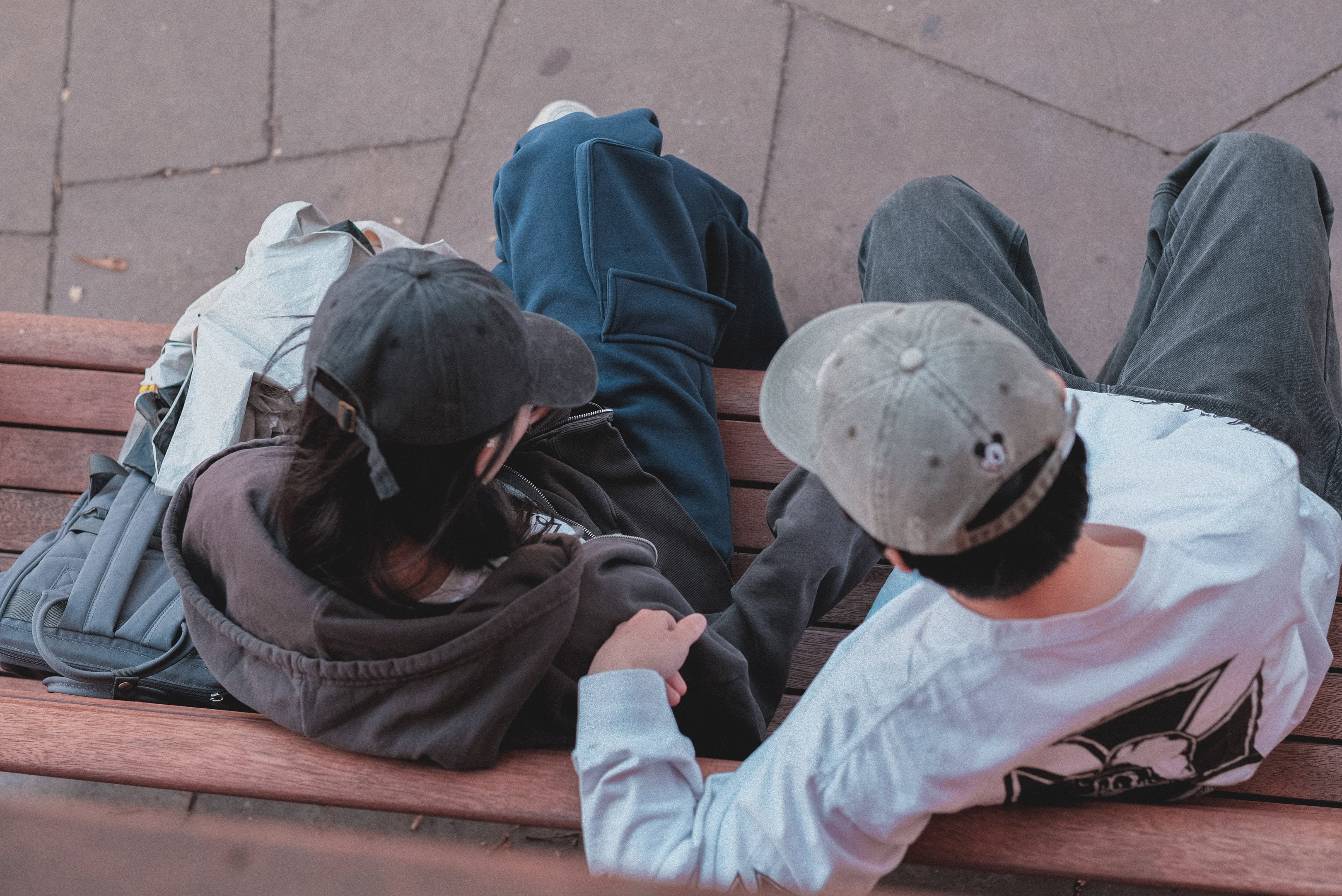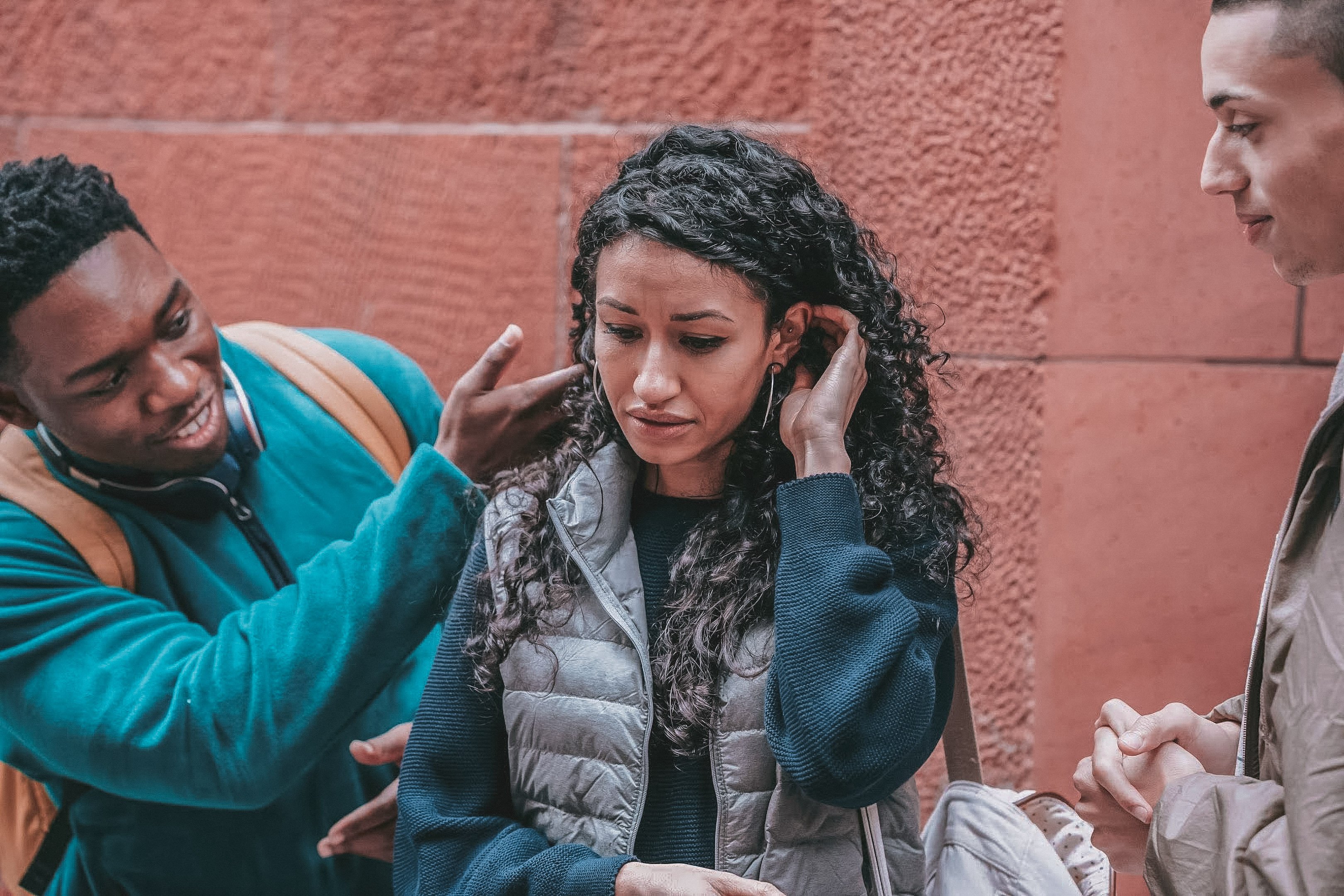Signs of an Unhealthy Relationship: A Guide for Teens & Parents
Learn to identify signs of an unhealthy relationship and take action. Protect your well-being—read on for practical insights and guidance.



Unhealthy relationships, often called toxic relationships, involve repeated behaviors that harm one or both partners’ mental, emotional, or physical well-being. Everyone has off days, but when disrespect, control, or fear become patterns, the relationship crosses into unhealthy territory.
Healthy relationships are built on respect, trust, and open communication. In a healthy partnership, you feel safe being yourself, even during disagreements. Unhealthy relationships, on the other hand, leave you drained, anxious, or afraid. One person might control decisions, dismiss feelings, or slowly chip away at the other’s confidence.
This guide explains what an unhealthy relationship is, key warning signs to look out for, reflection questions for teens and parents, and more.
Key takeaways:
- It’s normal to make mistakes, but a relationship becomes unhealthy when hurtful patterns keep repeating.
- Losing independence, being isolated from loved ones, having boundaries crossed, or constantly walking on eggshells are early signs that something’s not right.
- Teens are especially vulnerable to dating abuse and harm.

13 signs of an unhealthy relationship to watch for
Unhealthy relationships don’t always start that way. Rather, unhealthy signs often emerge gradually and insidiously. If you notice several of these signs of an unhealthy relationship, it’s important to take it seriously.
Control and manipulation
A controlling partner often uses guilt, manipulation, or drama to maintain power. They might twist your words, play mind games, or make you feel responsible for their emotions, like giving the silent treatment until you give in.
Some controlling behaviors include:
- Controlling daily choices and decisions
- Limiting access to money or resources
- Cutting off contact with friends or family
- Monitoring calls, messages, or location
- Demanding constant contact
Hostility and volatility
A relationship is volatile when tension escalates quickly. One moment, things seem fine, and then the next, your partner is yelling or lashing out over something small. This kind of hostility keeps tension simmering and often leads to frequent blowups.
Common signs include:
- Sudden intense outbursts
- Threats toward you, themself, or others
- Hostility in daily interactions, like sarcasm or passive-aggression remarks
Isolation from loved ones
Isolation happens when one partner deliberately distances the other from friends and family. It often begins subtly, seeming caring or romantic at first, before shifting into control and leaving you without support.
Common tactics include:
- Discouraging social plans
- Starting fights when you spend time with others
- Moving away from support networks
- Demanding all your time and attention
Dishonesty and betrayal
Lies, secrecy, or infidelity can leave you questioning what’s real and erode emotional security over time.
Common patterns include:
- Repeated lying
- Hiding details in an intentionally dishonest way
- Emotional or physical cheating
- Concealing important information
- Secret online or financial activity
Disrespect and belittling
Constant criticism or mockery not only creates an unequal power dynamic but also chips away at your confidence over time, making you question your worth.
Belittling can look like:
- Criticizing appearance, opinions, or abilities
- Mocking or embarrassing you in public
- Name-calling, insults, put-downs, starting rumors, or wrongly accusing you
- Dismissing opinions and feelings
- Comparing you unfavorably to others
Walking on eggshells
Having a volatile or highly critical partner can make you feel like you’re walking on eggshells, constantly monitoring your words and actions to avoid setting them off. You end up changing your behavior just to keep the peace.
Common signs include:
- Hypervigilance for any mood shifts
- Avoiding sensitive topics
- Feeling tense during normal interactions
- Worrying about doing or saying the wrong thing
Sacrificing authenticity
You might give up hobbies, values, or friendships to keep your partner happy. Over time, you lose sight of who you are and what matters to you, reshaping your life around their needs instead of your own.
This can look like:
- Letting go of interests or passions
- Adopting their values or opinions
- Becoming defined by the relationship
- Prioritizing them over yourself
- Ignoring your own comfort or limits
Emotional rollercoaster
Your relationship may feel like a constant cycle of highs and lows, with intense affection one moment and painful conflict the next. These dramatic makeups and breakups often stem from volatility or even intentional manipulation.
Common patterns include:
- Periods of over-the-top affection and attention (love bombing)
- Sudden withdrawal or criticism
- Attachment to cycles of breakup and reconciliation (trauma bonding)
- Dependence on the highs to stay (emotional dependency)
Ignored boundaries
A healthy partner respects your limits, while an unhealthy one pushes or crosses them. They might pressure you into things that make you uncomfortable or refuse to take “no” for an answer.
Examples of boundary violations include:
- Physical: Unwanted touch or invasion of space
- Emotional: Pressure or guilt-tripping
- Digital: Reading private messages or DMs
- Time: Ignoring your need for privacy or alone time
Hope they’ll change
You may stay hoping things will improve, clinging to apologies or promises instead of real change.
Signs you may be stuck in this cycle include:
- Your partner is making excuses for bad behavior
- Feeling stuck in a cycle of false hope
- Loving your partner’s potential over reality
- Your partner minimizes harm or blames stress
- Staying in a relationship because of the time and energy you’ve already invested
Lack of emotional safety
You feel on guard, afraid to be honest, or worried your partner will use your feelings against you. Over time, you start hiding parts of yourself or bottling emotions to avoid conflict.
Common signs of lacking emotional safety include:
- Fear of judgment or ridicule
- Avoiding honesty or vulnerability
- Being told you’re too sensitive
- Facing blame, anger, or withdrawal for speaking up
- Words are twisted to make you doubt your judgment and sanity (gaslighting)
Loved ones’ concerns
It can be hard to see your relationship clearly when you’re in it, but loved ones often notice changes first.
A pattern of concern from people who care about you usually signals something’s off.
Warning signs include:
- Friends or family express worry
- Loved ones notice changes in you
- Feeling defensive when others ask
Experiencing signs of anxiety and depression
Unhealthy relationships often affect your mental health. Studies show that youth who are victims of dating violence are more likely to experience depression, anxiety, and post-traumatic stress.
Indicators include:
- Chronic stress and anxiety
- Mood changes
- Sleep issues like insomnia
- Reduced academic performance
- Headaches or stomach pain
How unhealthy relationships start
Unhealthy or abusive relationships rarely start out obviously bad. They often begin in an intense, intoxicating way that draws a person in deeply before the negativity fully shows up.
Love bombing
A new partner may overwhelm you with attention, praise, and gifts early on. They might text nonstop, move fast, and make you feel like you’ve found “the one.” While it can seem romantic, love bombing is a red flag. It’s meant to lower your defenses and create dependence.
Gradual escalation
Most controlling or abusive partners don’t show their worst behavior right away. They start with small boundary pushes that grow over time, making them harder to spot.
Each step tests your reaction. If you accept it, they push further. Once you’re attached, they feel freer to control or lash out, and by then it’s harder to walk away.
Early red flags
Unhealthy relationships often begin with subtle warning signs that get overlooked or excused. Teens, in particular, may confuse controlling or possessive behavior with passion or care because they’re still learning what healthy love looks like.
Preying on insecurities
Manipulative partners sometimes target people’s vulnerabilities to gain control, a tactic called grooming. They build trust by making you feel special, then slowly introduce unhealthy behavior like sexual pressure, secrecy, or rule-breaking to desensitize you.
By exploiting your insecurities, they create dependence and make it harder for you to recognize the manipulation or leave.
Why spotting red flags early matters
Spotting red flags early matters in teen relationships, where vulnerability to abuse is higher. Not all unhealthy relationships are abusive, but many are. The most severe form of an unhealthy relationship, abuse involves power and control, when one partner intentionally harms, intimidates, or dominates the other. Abuse can be physical, sexual, emotional, or psychological. Abusers often cycle between cruelty and remorse to keep control.
According to 2019 data from the CDC’s Youth Risk Behavior Survey, about 1 in 12 teens experience physical dating violence and about the same number face sexual dating violence.
Unhealthy relationships in adolescence can have lasting effects. Frequent conflict and disrespect in adolescence are linked to higher risks of anxiety, depression, and social withdrawal later in life.
Reflective questions for teens and parents

Recognizing signs on a list is one thing, but applying them to your own life can be harder. Here are some reflective questions and prompts you can ask yourself:
For teens, ask yourself:
- Can I be myself around my partner?
- Am I giving up things I care about for this relationship?
- Do I feel generally happier or more anxious and sad since I started this relationship?
- Why am I staying in this relationship?
- If a friend were dating someone who treated them the way your partner treats you, would you be happy for them or concerned?
For parents, consider these:
- Have you noticed changes in your teen’s mood, confidence, or behavior since the relationship began?
- Does your teen seem more isolated or secretive than before?
- How does your teen’s partner treat them and you when you interact?
- Can you talk openly with your teen about their relationship without them becoming defensive or fearful?
- If you were truly worried, would your teen know where to turn for help and feel safe coming to you?
When and how to seek help
If something doesn’t feel right, trust your gut — it probably isn’t. You don’t have to deal with it alone. When you’re ready to talk, reach out to someone you trust (such as a friend, family member, teacher, or counselor) and share what’s going on at your own pace.
You can’t control your partner’s actions, but you can take steps to stay safe. If you’re planning to leave and fear their reaction, make a safety plan. Pack essentials, know safe places, and keep contact numbers handy.
Counseling can also help you process emotions, rebuild confidence, and plan next steps. Many schools have counselors, or you can connect with an outside therapist for confidential support and guidance.
Emora Health connects teens with licensed therapists who understand the challenges of adolescence and young adulthood. They offer support for struggles like toxic or abusive relationships, low self-esteem, and anxiety.
You deserve to feel safe, respected, and supported in every relationship, and help is here when you’re ready to reach out.
If you need immediate support or just someone to talk to, these resources can help:
- National Domestic Violence Hotline: Call 1-800-799-7233 (SAFE), text START to 88788, or chat at thehotline.org for anyone experiencing abuse or needing relationship support.
- Love is Respect: Text LOVEIS to 22522, call 1-866-331-9474, or chat at loveisrespect.org for teens and young adults with questions about dating abuse or healthy relationships.
- Crisis Text Line: Text HOME to 741741 for anyone in emotional crisis or needing immediate support from a trained counselor.
Beyond these hotlines, many communities have domestic violence shelters and youth programs offering counseling, legal advice, and safe housing if needed.


